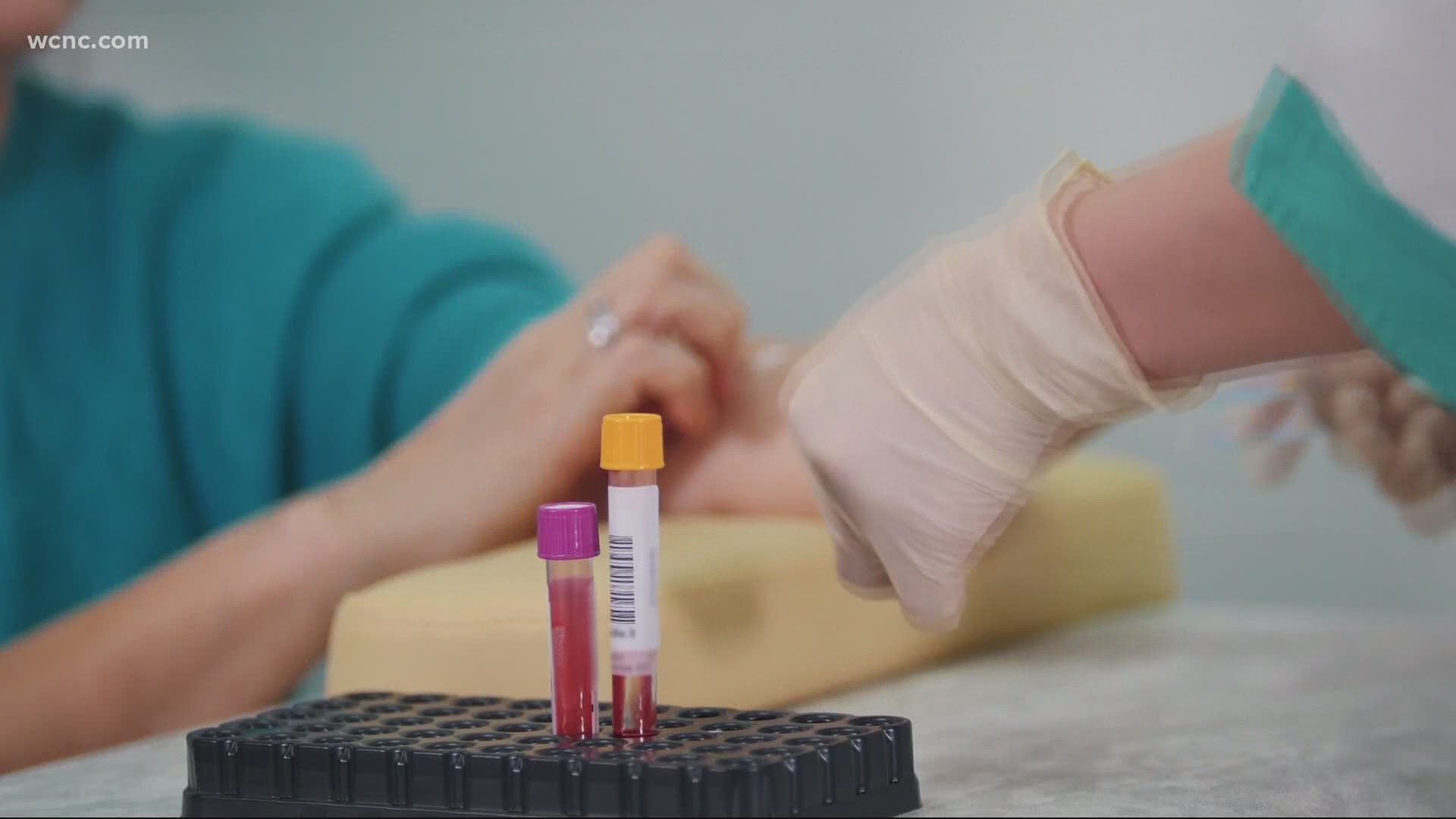CHARLOTTE, N.C. — The need for blood donations is heightened after severe winter storms that recently swept the country. According to the American Red Cross, those weather conditions canceled donation appointments in several states. The organization is putting out the call for help from people in unaffected areas.
"Every two seconds, someone in this country relies on a blood donation," Maya Franklin, with the American Red Cross of the Greater Carolinas, said.
Before rushing out to make a donation, there are some things to know about your COVID-19 status and how it impacts your ability to donate blood.
COVID-19 POSITIVE
People who have tested positive for coronavirus can and are encouraged to donate blood, but there is a waiting period after symptom onset (or positive test, if asymptomatic).
"We ask that they are symptom-free for 14 days before coming to make a donation," Franklin said.
For people who are asymptomatic with a positive COVID-19 test, that period is 14 days after the test.
One of the reasons those who have recovered from the virus can be such valuable blood donors is their ability to offer convalescent plasma.
"Those people who have the antibodies from coronavirus can help other people who are battling the virus currently," Franklin said.
Both the Red Cross and OneBlood test donors for COVID-19 antibodies during regular donation sessions.
VACCINATED PEOPLE
In the Carolinas, millions have now gotten at least one dose of COVID-19 vaccine.
Food and Drug Administration guidance states there should be no waiting period after getting an mRNA vaccine. Right now, those are the only types on the market, with Pfizer and Moderna.
"You can donate before and after with those two. We do have some evidence that supports that," Nikki Nissen, Chief Nursing Officer with Novant Health, said.
The FDA states if and when a live-attenuated COVID-19 vaccine becomes available, people who receive that product should have a short waiting period before donating blood.
Both the Red Cross and OneBlood said, even though the FDA now permits vaccinated people to give convalescent plasma, the logistical changes needed to implement this policy are "complex" and are still in progress. Both organizations are working on making the change, but for now, they are having vaccinated people stick to other types of donation, like whole blood or platelets.
CONVALESCENT PLASMA RECIPIENT
For those who have received convalescent plasma themselves, OneBlood states there is a three-month deferral period.
To find more information on how to donate blood, visit the American Red Cross or OneBlood websites.
Have a relative or friend in another state and want to know when they can get vaccinated? Visit NBC News' Plan Your Vaccine site to find out about each state's vaccine rollout plan.

